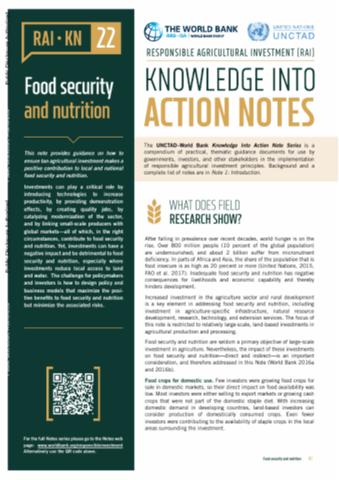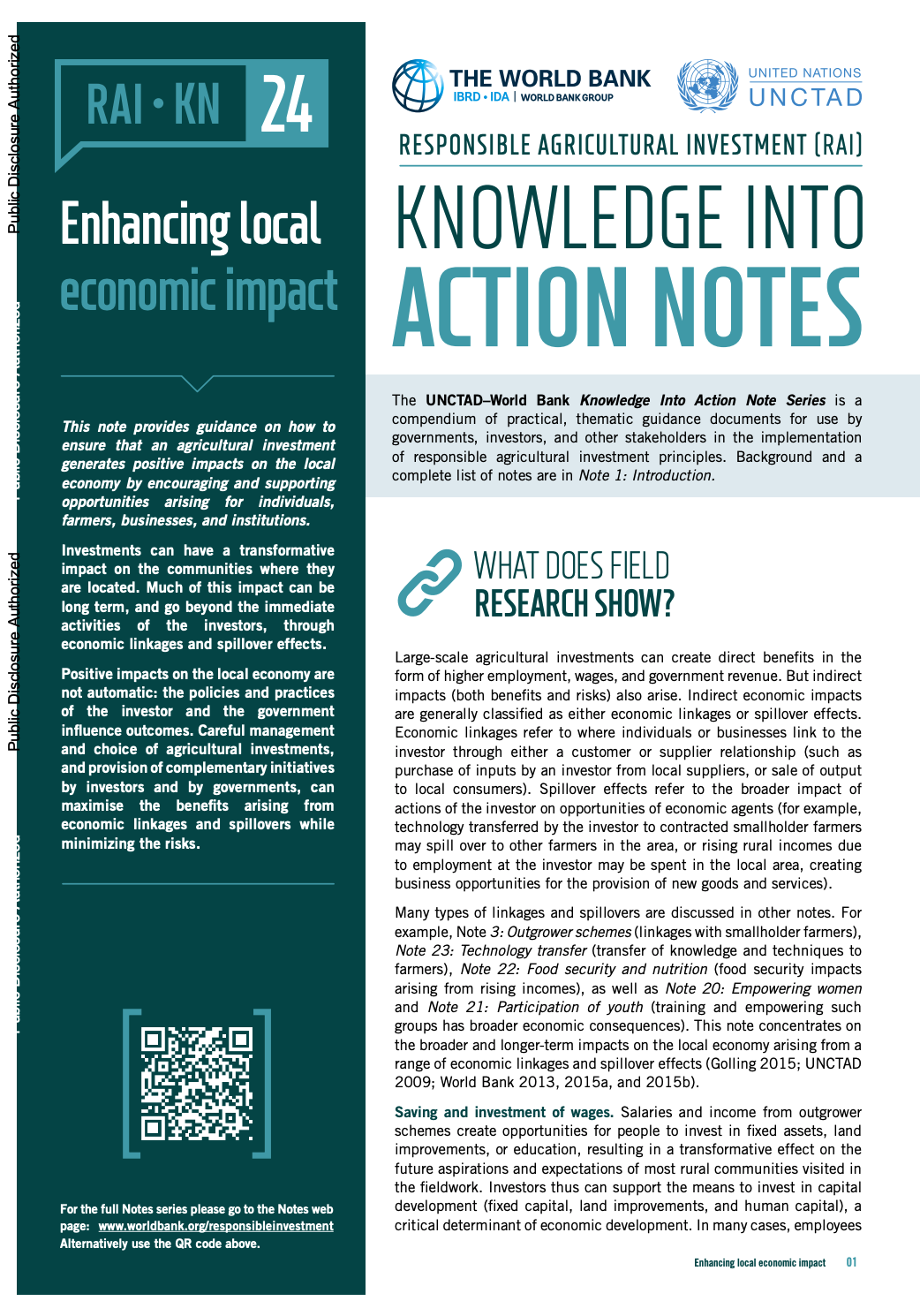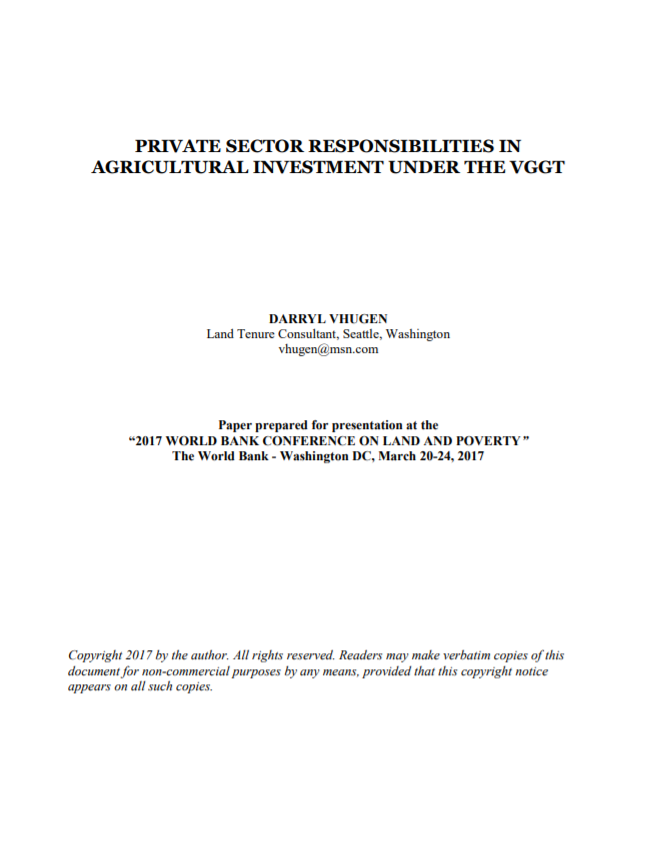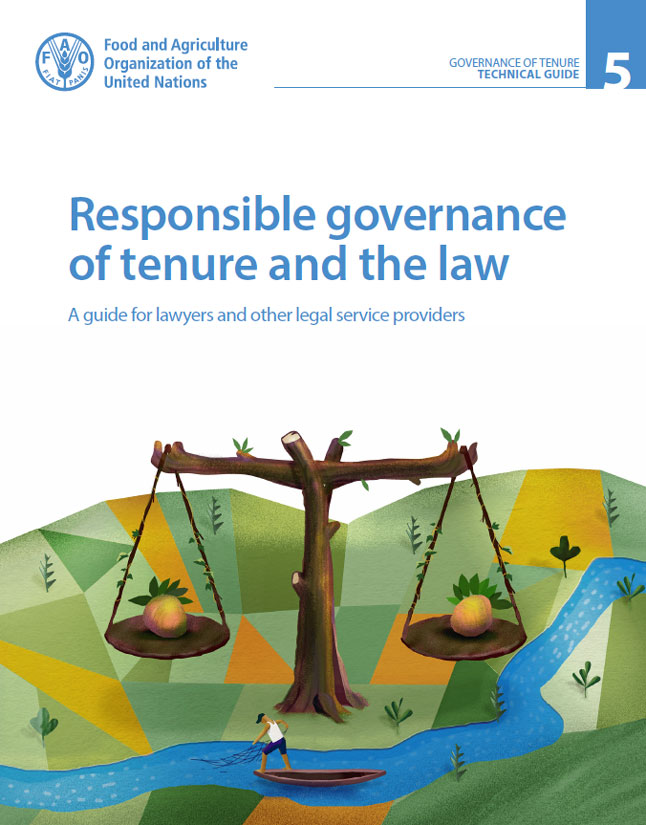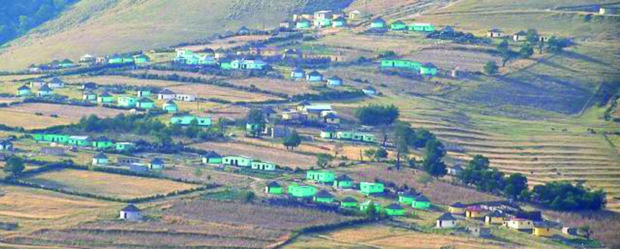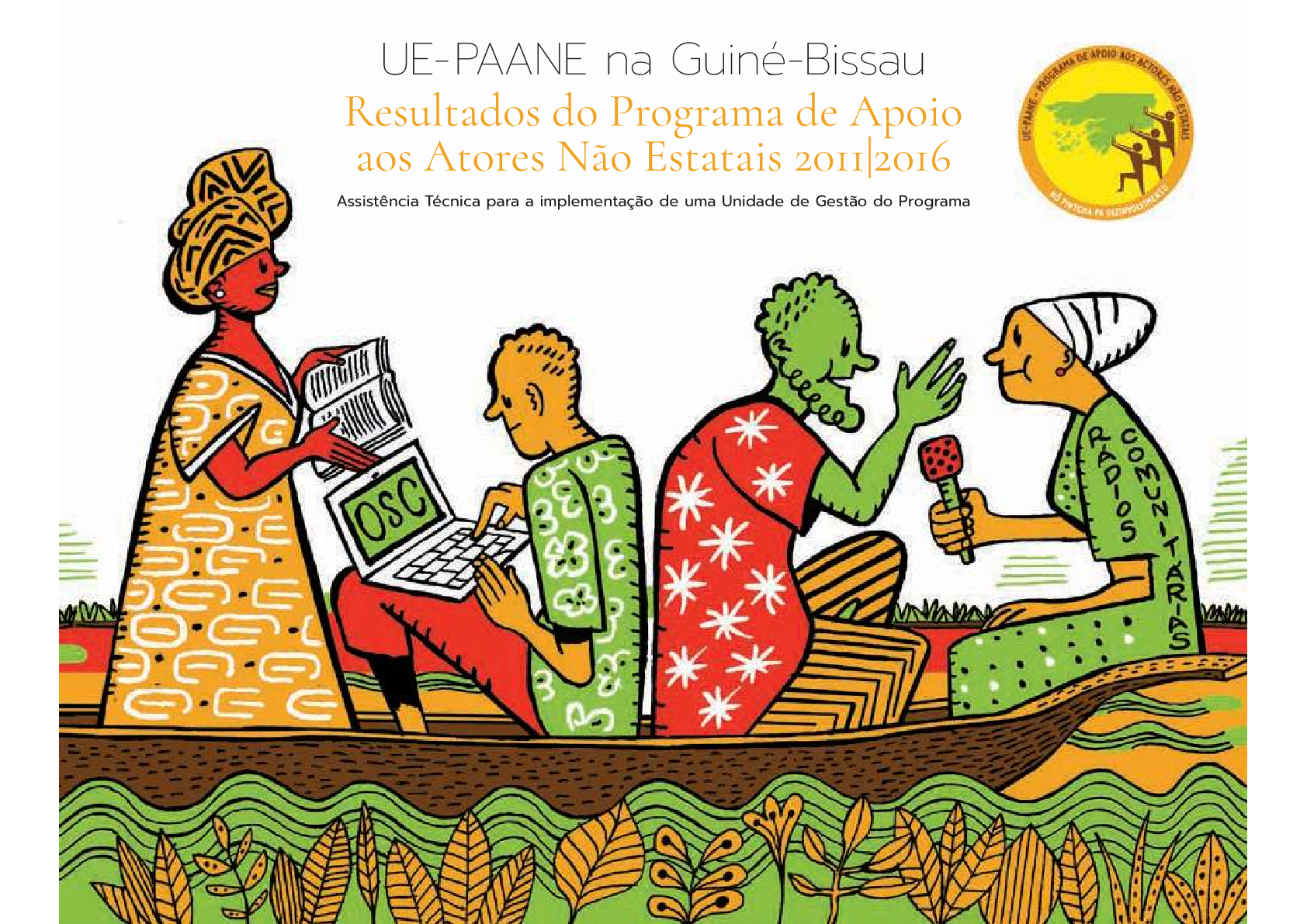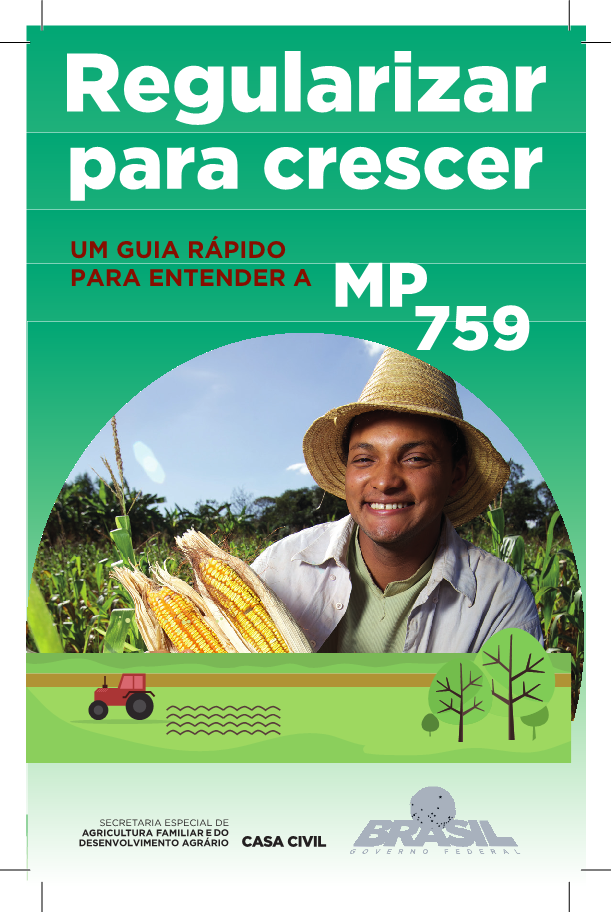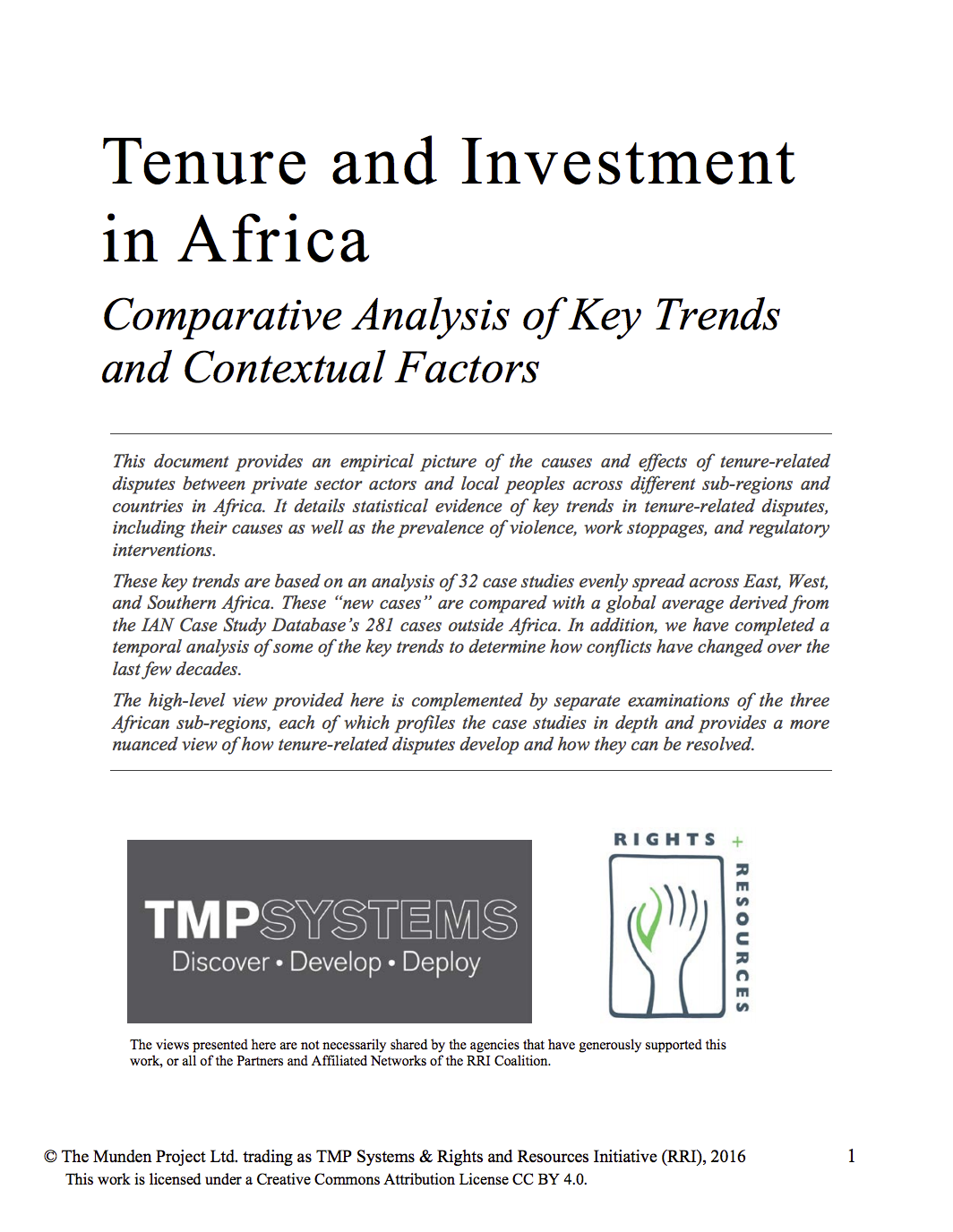22 - Food Security and Nutrition - Responsible Agricultural Investment (RAI): Knowledge into Action Notes series
This note is part of an Action Notes series and provides guidance for governments and companies on practices to reduce gender inequalities and to empower women to make a positive contribution to development through agricultural investments.

